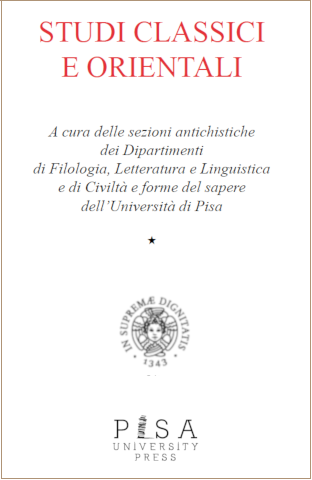La ‘malattia sacra’ di Cambise: una diagnosi erodotea?
Abstract
Cambyse’s ‘sacred disease’: a herodotean diagnosis?The author analyses Herodotus’ choice of his sources in order to ‘strike a balance’ between two recent publications which define Herodotus’text as almost exclusively ‘religious’ or ‘scientific’. The case studyis the description of the figure of Cambyses in the third book of theHistories. There are historical grounds for the narrative of Cambyses’infamous deeds in Egypt. The traditional thesis of the deprivation ofeconomic privileges for the Egyptian temples by Cambyses as the onlycause of his negative fame in ancient historiography should be rejected.It is likely that at least the first part of Cambyses’ reign in Egypt wasmarked by violent and dramatic changes – which anyway do not includeCambyses’ alleged murder of the bull-god Apis. The influence ofHippocratic medicine on Herodotus’ depiction of Cambyses’ madnessshould not be overestimated. Although Herodotus is familiar with someideas and notions shared by contemporary physicians, his narrative ofCambyses’ actions is not strongly conditioned by them, and certainlyhas no connection with the main thesis of the author of the Hippocraticwork named On the sacred disease. The sources and opinions collectedby Herodotus do not aim at a ‘scientific’ narrative of a madman’s deeds,but rather at a moral vision of a Persian monarchic power.
simone.rendina@sns.it
Fascicolo
Sezione
Articoli


